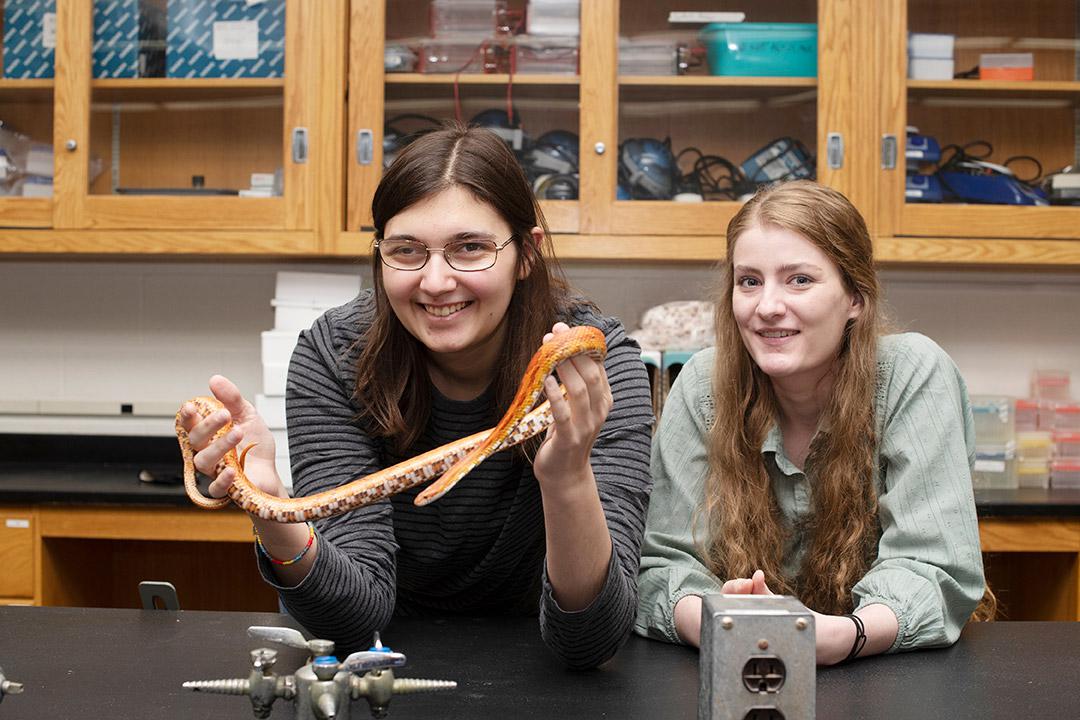Rochester Institute of Technology students can soon begin earning a minor in an emerging field that could disrupt the science, technology, engineering, and math (STEM) disciplines. RIT students can now take classes toward a minor in quantum information and technology science.
“This is a hot field garnering a lot of attention and we are excited to offer students a chance to gain some technical depth in quantum so they can take this knowledge and go the next step with their careers,” said Ben Zwickl, associate professor in RIT’s School of Physics and Astronomy and advisor for the minor. “It will provide a pathway for students from any STEM major to take two core courses that introduce them to quantum and some of its applications, as well as strategically pick some upper-level courses within or outside their program.”
Quantum physics seeks to understand the rules and effects of manipulating the smallest amount of energy at the subatomic level. Scientists and engineers are attempting to harness the strange, unintuitive properties of quantum particles to make advances in computing, cryptography, communications, and many other applications. Developers of the minor said there is a growing industry that will need employees knowledgeable about quantum physics and its applications.

“We’re seeing a lot of giant tech companies like IBM, Intel, Microsoft, and Google get involved with quantum, but there’s also a lot of venture capital going to startup companies in quantum,” said Gregory Howland, assistant professor in the School of Physics and Astronomy. Howland will teach one of the minor’s two required courses this fall—Principles and Applications of Quantum Technology. “You have both sides of it really blossoming now.”
The minor, much like the field itself, is highly interdisciplinary in nature, with faculty from the College of Science, Kate Gleason College of Engineering, College of Engineering Technology, and Golisano College of Computing and Information Sciences offering classes that count toward the minor. The minor grew out of RIT’s Future Photon Initiative and funding from the NSF’s Quantum Leap Challenge Institutes program.
Associate Professor Sonia Lopez Alarcon from RIT’s Department of Computer Engineering will teach the other required course—Introduction to Quantum Computing and Information Science—starting this spring. She said taking these courses will provide valuable life skills in addition to lessons about cutting-edge science and technology.
“They’ll learn more than just the skills from the courses, they’ll learn how to get familiar with a topic that’s not in the textbooks officially yet,” said Lopez Alarcon. “That’s a very important skill for industry. Companies want to know they’re hiring people with the ability to learn about something that is emerging, especially in science and technology because it’s such a rapidly changing field.”
The faculty involved noted that they hope to attract a diverse group of students to enroll in the minor. They said that although the disciplines feeding into quantum have struggled with inclusion related to gender and race and ethnicity, they will work with affinity groups on campus to try to recruit students to the program and ultimately advance the field’s inclusivity.
To learn more about the minor, contact Ben Zwickl.









